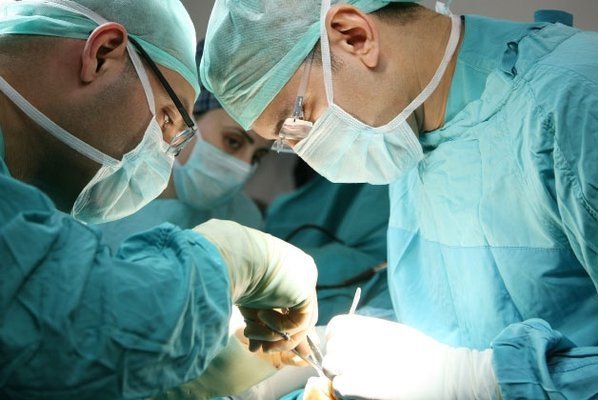
This was agreed on during the visit of a Chinese medical delegation to the Pakistan Institute of Medical Sciences (Pims). The surgeons agreed to train staff of the hospital including surgeons, nurses, paramedics and anaesthesia staff so that the liver transplant centre at the hospital, which has not been operational for the past five years due to acute shortage of trained surgeons and other supporting staff, can start working.
The liver transplant facility at Pims, under the unit for Hepatobiliary Surgery and Organ Transplant, was established in 2010 through a time grant of Rs238 million by the then prime minister Yousaf Raza Gillani under guidance from professions at the Royal Free Hospital in London.
Chinese surgeons to train local doctors torevive liver transplant surgeries at PIMS
It carried out its maiden transplant in 2012. But with the operation reportedly unsuccessful, the facility had been mothballed ever since despite the huge demand.
“The machines and equipment in the centre have been lying idle since we do not have the relevant expertise and trained human resource to carry out successful procedures,” lamented Pims Executive Director Dr Amjad Mehmood.
Dr Mehmood went on to add that they were considering various options to make the facility functional, the Chinese collaboration being one of those options.
The delegation visited all departments of the hospital including emergency, outpatient, operation theatres and held meetings with Dr Mehmood and the Joint Executive Director Dr Ejaz Qadeer.
On Wednesday, they held a detailed meeting with the Pims administration, including the head of the Surgical Department Professor Dr Tanveer as they chalked out the way forward. The Gastroenterology and the surgical departments have been asked to draft a list of patients who require liver transplants.
Earlier in 2016, the hospital tried to hire trained liver transplant surgeons, hepatologist, anaesthetist, and intensive care specialists from the Shifa International Hospital on prevailing market rates. A summary was forwarded to the prime minister but it could not get his nod.
Currently, the SIH is the only facility which offers liver transplant facility in the capital. However, it is believed to cost around Rs3 million.
No money, no doctors: Pims liver transplant centre becoming white elephant
Previously, patients used to seek treatment in India. But due to strained ties between Islamabad and New Delhi, the visas dried up. This has forced patients to seek out other options such as China.
According to Pims officials, more than 500 patients suffering from hepatitis C, B or other ailments need transplants every year, but due to the absence of such a facility, doctors are hesitant to even recommend or offer it to needy patients.
Pakistan has the second-highest hepatitis C disease burden in the world, which causes acute and chronic liver disease.
According to a national hepatitis survey, in 2008 there were eight million cases of hepatitis C and four million of hepatitis B in Pakistan. But the World Health Organisation (WHO) estimates that this could be as high as 13 million since many people are unaware that they are infected.
A patient requires a liver transplant when Hepatitis B or C is complicated and damages the liver, called “decompensated cirrhosis’. It is also recommended if a patient develops liver failure or when a patient develops liver cancer and is diagnosed early.
Published in The Express Tribune, March 22nd, 2018.

1731570357-0/elon-musk-(1)1731570357-0-165x106.webp)
-(1)1717678110-0/Kendrick-(1)-(1)1717678110-0-165x106.webp)














COMMENTS
Comments are moderated and generally will be posted if they are on-topic and not abusive.
For more information, please see our Comments FAQ